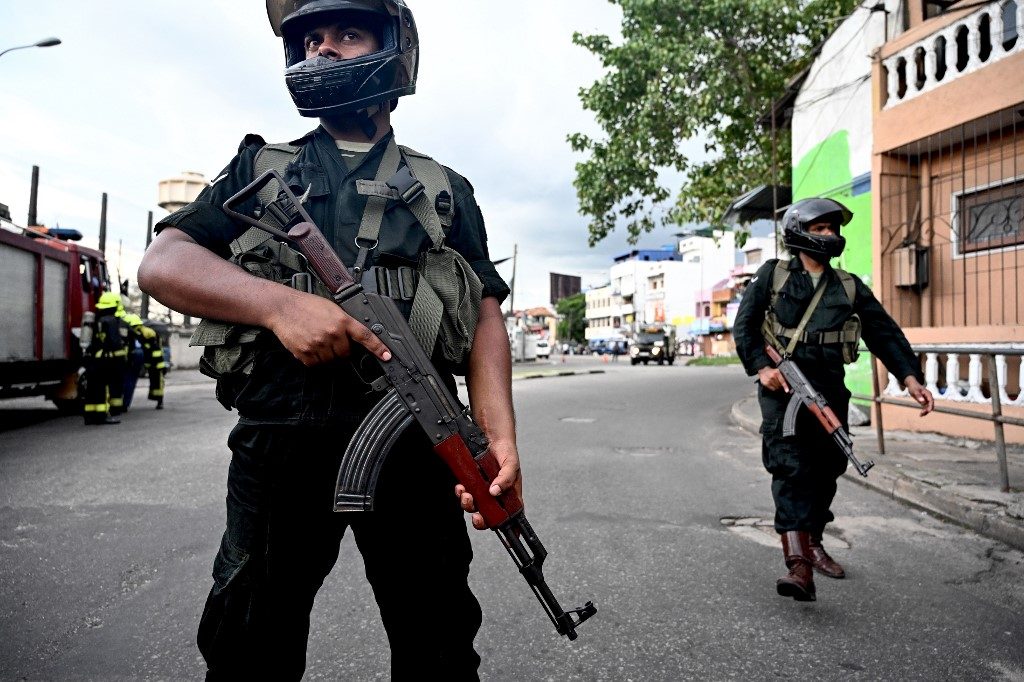SUMMARY
This is AI generated summarization, which may have errors. For context, always refer to the full article.

COLOMBO, Sri Lanka – A state of emergency was extended by Sri Lanka’s President Saturday, June 22, going back on pledges to relax the tough laws introduced after the Easter Sunday attacks that killed 258 people. (READ: World leaders condemn deadly Sri Lanka blasts)
Maithripala Sirisena said in a decree he believed there was a “public emergency” in the country, and was invoking provisions of the public security act extending the state of emergency.
The tough laws, granting sweeping powers to police and security forces to arrest and detain suspects, were due to expire on Saturday.
Just over 100 people, including 10 women, are in custody in connection with April’s Easter Sunday suicide attacks against 3 churches and 3 luxury hotels in Colombo. (READ: Bombed Catholic church in Sri Lanka attacks reopens)
In late May, Sirisena told diplomats – from Australia, Canada, Japan, the US, and European states – the security situation was “99 percent back to normal” and he would allow the emergency laws to lapse by June 22.
He assured diplomats security forces had either detained or killed all those directly involved in the attacks, blamed on a local jihadi group, and claimed by the Islamic State group.
There was no immediate word from the government why Sirisena changed his mind, but security remains tight in the capital.
The emergency can be declared for a month at a time, and parliament must ratify it within 10 days.
The continuation of the emergency came as police announced criminal investigations against several top officers, including the Inspector-General, for negligence and lapses ahead of the bombings.
Sirisena himself has been criticized for failing to act on precise Indian intelligence that jihadists were about to hit Christian churches and other targets in Sri Lanka.
A parliamentary public inquiry has been told Sirisena – who is also the minister of defense and law and order – failed to follow proper national security protocols. (READ: Sri Lanka to charge police for ‘lapses’ over Easter attacks)
The mainly Buddhist nation of 21 million people was about to mark a decade since ending a 37-year-long Tamil separatist war when the Islamic extremists struck. – Rappler.com
Add a comment
How does this make you feel?
There are no comments yet. Add your comment to start the conversation.